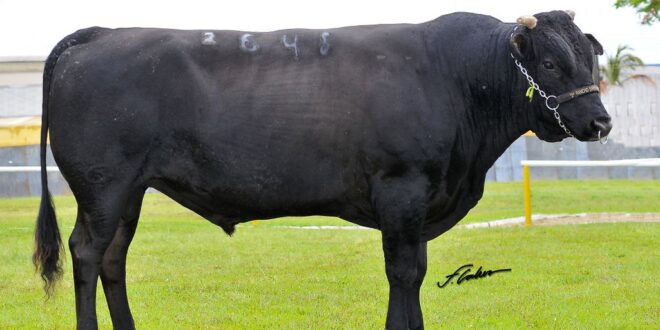Press release…
As Brazil’s beef industry becomes increasingly competitive and data-driven, producers are showing stronger demand for reliable, traceable genetics to secure consistent results from pasture to plate. According to the Brazilian Association of Artificial Insemination (ASBIA), semen sales for beef cattle grew 5% in the first half of 2025 compared to the previous year. Yet the market remains selective, rewarding only those sires with verified performance and genetic predictability—particularly in premium breeds such as Wagyu.
“The beef sector is clearly maturing,” says Tatiana Caruso, veterinarian at Guidara, a Brazilian leader in Wagyu breeding, genetic selection, and vertical integration. “Investing in high-quality semen is the first step toward achieving uniformity and performance at finishing. In Wagyu production, every genetic decision impacts carcass quality and marbling consistency.”
Caruso notes that producers are increasingly choosing AI sires with documented genetic profiles, valuing traceability and proven progeny data over physical appearance alone.
“A good-looking catalog bull is no longer enough,” she explains. “Producers want to know what’s in his DNA and what he truly passes on to his offspring. The genetic consistency of semen sires determines system efficiency and reduces the risk for those investing time and capital in feedlots. One uncertain genetic line can compromise an entire operation.”
Beyond productivity, this genetic reliability has commercial implications. Guidara operates integration and buy-back programs offering premium bonuses for crossbred animals sired by Guidara genetics—ensuring producers have a secure market outlet.
“When a producer uses semen with proven lineage and traceability, they gain predictability—and that’s what allows us to offer guaranteed buy-backs,” adds Daniel Steinbruch, President of Guidara.
This shift in mindset is also being observed by AI collection and distribution centers.
According to Fernando Pereira, director at PremiumGen, a leading semen marketing center, the demand for high-marbling sires has risen sharply.
“A few years ago, these bulls were considered too niche for commercial programs,” Pereira recalls. “Now, they’re the most in-demand. The industry has realized that while phenotype might sell catalogs, genotype delivers results.”
As the Brazilian beef market continues to align with global standards of traceability, genetic evaluation, and premium beef production, Wagyu genetics are expected to play an increasingly strategic role in value-added beef chains…
 THE GLOBAL WINDOW OF TURKISH FOOD AND AGRICULTURE The Global Window of Turkish Food and Agriculture Sector
THE GLOBAL WINDOW OF TURKISH FOOD AND AGRICULTURE The Global Window of Turkish Food and Agriculture Sector








